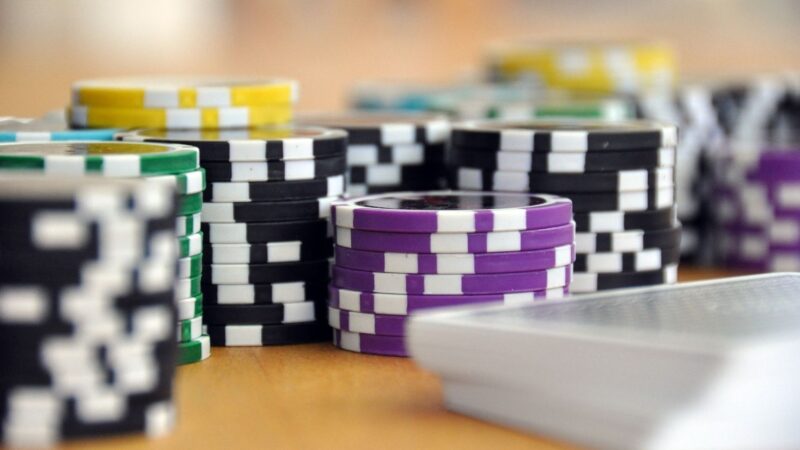In the glittering world of casinos, where neon lights flicker and the sound of spinning reels echoes through the air, an age-old debate simmers beneath the surface: is success at the gaming table driven by sheer luck, or is it a calculated dance of mathematics? Every shuffle of the cards and every roll of the dice conceals a myriad of possibilities, beckoning players with promises of fortune. While some enter the fray with wild abandon, propelled by the whims of chance, others meticulously study odds, strategies, and probabilities, believing that mastering the numbers can lead to victory.
As we delve into this fascinating conundrum, we will explore the intricate interplay between luck and skill, unravel the mythos of instant wins, and examine the mathematics that underpin every game in these temples of chance. What truly governs the fate of the gambler? Is it the fickle hand of fortune, or are the numbers ultimately in control? Join us as we embark on this intriguing journey through the world of chance and calculation.
Understanding Luck in Gambling: A Double-Edged Sword

Understanding luck in gambling is akin to navigating a treacherous double-edged sword; it can bring exhilarating highs and crushing lows. For many players, luck is the whimsical force that dictates whether they’ll walk away with pockets full of cash or empty-handed.
It’s that glimmer of hope before every spin of the roulette wheel or flip of the cards, a tantalizing promise that today might just be their lucky day. Yet, luck is inherently unpredictable, ebbing and flowing in a capricious dance that often leaves players bewildered.
Some might argue that skill and strategy are paramount, but the thrill of chance, that tantalizing uncertainty, plays an equally vital role in the casino experience. This intricate interplay between fortune and strategy creates a dynamic gambling environment, where every decision feels weighted with potential rewards and the specter of loss looms large, challenging both seasoned gamblers and novices alike.
What Does Luck Actually Mean in a Casino Context?

In the vibrant world of casinos, luck often emerges as an enigmatic force, captivating players and fueling the glimmer of hope that accompanies every bet. But what does luck truly mean in this context? At its core, luck can be viewed as the unpredictable twist of fate that influences outcomes in games of chance, from rolling dice to spinning slot reels.
Yet, it’s a double-edged sword; while it can lead to exhilarating wins that spark joy and exhilaration, it can just as easily result in crushing losses that temper that thrill. Casino games are designed to entertain, yes, but the nuanced interplay between probability and chance reveals that luck is as much a psychological play as it is a mathematical reality.
Players often walk the fine line between skill, strategy, and sheer happenstance, believing that their fortunes can shift with the next heartbeat, making every thrilling decision an intricate dance with destiny.
The Mathematical Foundations of Casino Games

The mathematical foundations of casino games are intricately woven into the very fabric of risk and reward, operating on principles that many players may overlook. Each game, from the spinning roulette wheel to the imposing blackjack table, is governed by probability and statistical analysis, creating a landscape where every bet has a calculated risk.
For instance, the house edge—an elegantly crafted mathematical concept—ensures that, despite temporary streaks of luck experienced by players, the casino ultimately profits over time. Take slot machines, for instance; they are programmed with Random Number Generators (RNGs) that determine outcomes based on complex algorithms, ultimately reflecting the house edge in every spin.
Understanding such mathematical principles can transform the way players approach their favorite games, making them more strategist than mere luck-seeker. In this high-stakes dance, math stealthily influences every decision and every wager, often leaving players blissfully unaware of the mathematical precision behind their choices.
Conclusion
In conclusion, the debate over whether luck or mathematics plays a more significant role in casino success is a complex one that ultimately reflects the nature of chance and strategic thinking. While luck undeniably influences short-term outcomes, the long-term effectiveness of carefully calculated strategies and understanding of odds cannot be dismissed.
Successful gamblers leverage their knowledge of mathematical principles while remaining aware of the inherent unpredictability of casino games. Resources such as https://spy-casino.com/ provide valuable insights and strategies that can aid players in maximizing their chances. Ultimately, a balanced approach that respects both the role of luck and the power of math may be the key to navigating the thrilling yet uncertain world of casinos.


